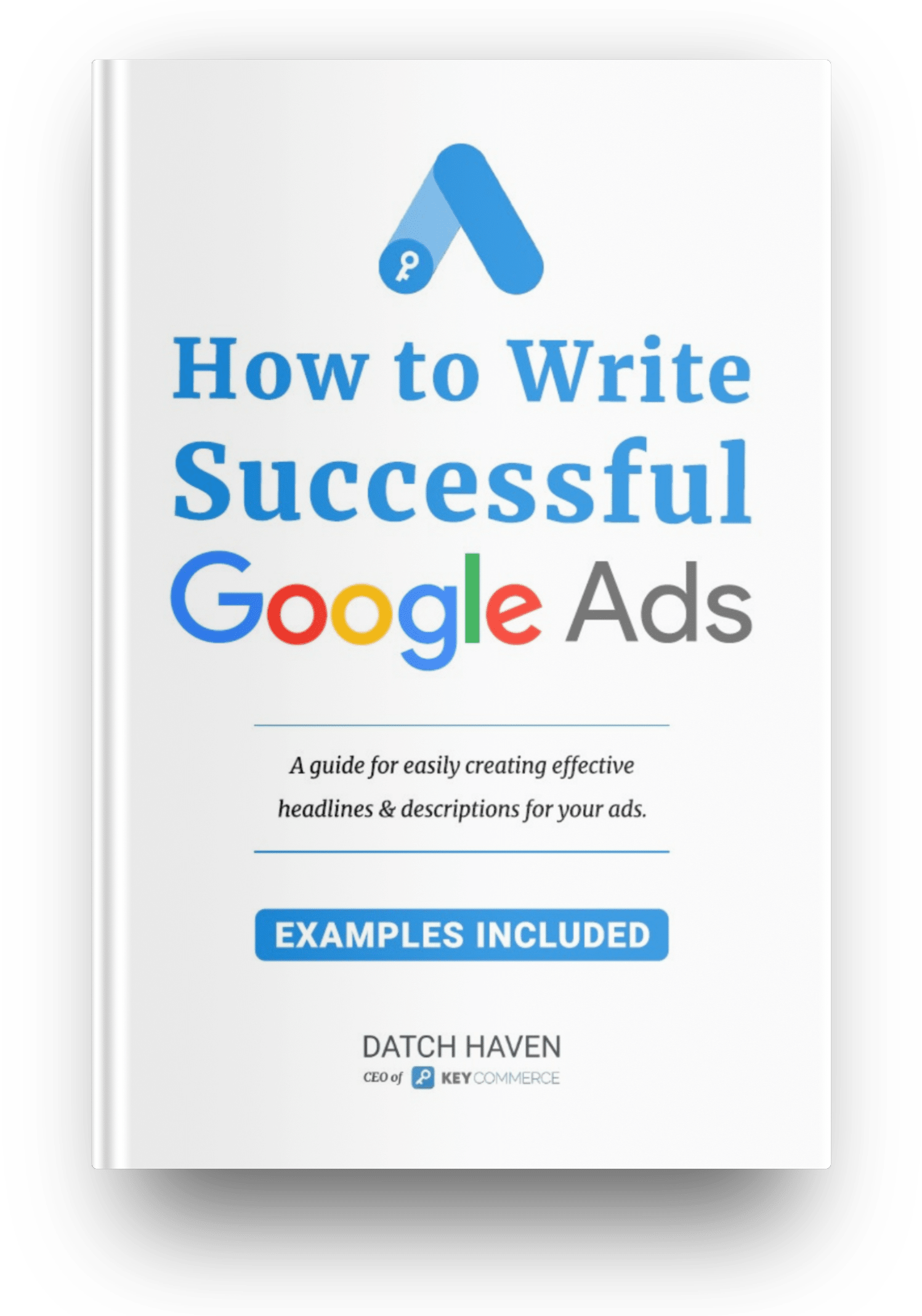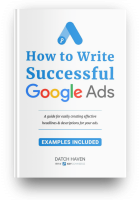Can you just skip trying to understand Google Ads keyword match types and move on with your traditional marketing? All these questions and no answer, poor you. But don’t worry. That’s why we are here. We are here to help you.
When it comes to PPC (pay-per-click) advertising, there are a lot of strategies that you can use for your eCommerce website. These strategies stem from understanding the different keyword match types and how they can be used effectively. Once used effectively and strategically, keyword match types can help you drive traffic to your website, increase brand awareness, but most of all generate online sales. Yay!
Hope we get you excited to know more about keyword match types. Understanding them can be a bit overwhelming. And your prior questions will give birth to additional questions like where to start? How much will it cost? Will it be effective? How long will you receive results? And many more.
Relax, you are not alone with those questions.
We know you are a beginner in PPC advertising and knowing keyword match types can be a bit too much. So we made sure to break things down in smaller details so you can better understand the whole concept.
So here we go!
What are Google Ads keyword match types?
Google keyword match types are like parameters or indicators set on your keywords to control which searches trigger the appearance of your ads.
There are different keyword match types. And each match type determines whether a wide audience will see your ads or whether your ads will only show for a few targeted searches.
I know it is a bit confusing. But think of match types like this, you are at a party. There are a lot of people there. You call out all the Aussies, and all the Aussies turn. Then you make your call more specific, by calling all Aussies who are 25 years old above. Then you make it more specific by calling all Aussies who are 25 years old above who are female. And so on and so on.
See what we did there? That’s the same with Google keyword match types. The way you filter your call signifies a certain keyword match type.
With match types, you are able to control how your ads will be shown to a wider or even targeted audience.
That is why Google keyword match types are very important. Most PPC advertising strategy fails because marketers or businesses owners fail to understand the different uses of match types. Moreover, they ended up paying a bunch of useless and unrelated search terms.
Here is an example of a search term report that showed unrelated terms. The keyword that is used is “micro lights”, and it results in over unrelated and unnecessary terms such as “dropz”, “innova”, “sharky gloving”, etc. Now, if you are not using keyword match types, you may end up paying and bidding for these keywords that are not even connected to your keyword or product. Imagine the money you will be wasting with all of these. Yikes!!!
Thus, planning out the right match types for your keywords greatly affect your campaign performance, budget, conversions and ad relevance.
There are four keyword match types – broad, modified broad, phrase, and exact. You can use them individually, but mixing each of them can also bring great results.
Here is a quick overview of the four keyword match types.
1. Broad Match
From the name itself, it is the broadest and loosest match type among the four. When you use broad match for a keyword, Google will display your ad to people who type the keyword itself, variations of the keywords, and also their synonyms.
For example, your keyword is women’s clothing. If you set this keyword to broad match, your ad will show to people typing women’s clothing, latest women clothing, clothes for women, and even to dresses for women.
This screenshot example uses ceramic pots with broad match type and the ad is showing to people who type ceramic pots, blue ceramic pots, ceramic cooking pots, and even pottery cookware.
Since broad match generates keyword searches that are super general that are sometimes not even related to your website or product, business owners and marketers end up spending a massive amount of Ad Spend to these keywords with minimal results.
That is why, when you are doing broad match searches you need to have a good negative keywords strategy to filter those keywords with low-intent traffic or for those unrelated and unwanted searches. Negative keywords refer to keywords that you don’t want your ads to show when typed on search engines.
Here’s an example of a broad match with negative keywords. The broad keyword is “shoes”. This means that any searches with shoes in the key phrase, your ad will show. And that is a lot of keywords as you can have “blue shoes”, “for sale shoes”, “definition of shoes”, the list is endless. And this is expensive and very irrelevant.
So what you want to do is use a negative keyword to filter out searches that are not related to your product. In this example, the negative keyword is “running shoes”. This means any searches with the words “running shoes”, “shoes running”, etc., your ad won’t be displayed.
Is broad match important? All match types are important, and yes, that includes broad match. No matter how broad the search report it generates, it is still important especially when you are doing some experimenting and researching on your target keywords.
However, don’t expect broad match keywords to convert. That is why, when planning your PPC strategy, don’t put all your budget on broad matches.
Clients who have a lot of budget usually spend a couple of dollars for broad matches just to collect data on what searches people are using. Then, they use this data to create more targeted campaigns with other tighter keyword match types.
When to use broad match
As mentioned, broad matches are good for experimenting and researching. Since you have data on what people are typing and searching using your broad match keyword, you can then use it in creating an RLSA (Remarketing Lists for Search Ads) campaign.
RLSA campaign helps you customise your ad campaign so it shows to people who have previously visited your website.
With the RLSA campaign, you can check what broader search queries people who visited your site are using. This way, you can bid on broad match keywords that your competitors are not bidding but can convert for you because people who visited your website have been using those broad searches. This kind of strategy is also a great complement to your other campaigns.
Before doing this strategy, we recommended doing some testing and experimentation, that is only if you have an extra budget since these experiments are not expected to convert. Although, we’ve seen a couple of instances where this strategy worked out.
Another good thing about using broad matches is that you are giving Google a lot of power to make decisions on what best and relevant ads to show to people. And this can pay off big time for your website. There are high volume campaigns with cheap CPCs (Cost Per Click) that can outperform regular campaigns with Phrase and Exact Match (which we will discuss later). Don’t be too excited as this is not always the case, but it is still worth trying.
If you are trying to use broad match for conversion using the above strategy and experimentation, you need to make sure that your website is optimized for CRO (conversion rate optimization) this is because Google needs enough conversion data from your site. If your website is not yet optimized for CRO, you need to prioritize this first with high-intent traffic and then go for these broad match campaigns.
Another way that you can use broad match is if you have a wide variety of products in your online store. For example, you have over 50 different colors of shoes, 20 types, and 80 brands not to mention if they are for men, women, and for kids. With this type of online store, it would be time-consuming to enter “Phrases” manually and is also kind of impossible. So you might want to use broad match for this.
2. Modified Broad
IMPORTANT NOTE: As from February 2021, broad match modifier as a separate matching behavior is no longer available. For more information on this change please click here.
Modified broad is the middle ground of broad match and other tighter match types. They have the benefit of reaching a wide audience like how broad matches do but you can control who sees your ad by modifying the key phrase with the “+” parameter.
So for example, you are selling rain boots. When you add the “+” parameter before the term rain (+rain boots) means that your ad will show to searches that have “rain” on the key phrase, whether it has boots or not. Some potential matches for this are “rain boots”, “rain forecast”, “rain jacket”, “raindrop”, and literally any word with rain on it.
On the other hand, if you put the “+” parameter before the term boots (rain +boots) all key searches with boots will show whether they have rain on the key phrase. Some potential results will be “rain boots”, “leather boots”, “discounted boots”, and “men’s boots”, among others.
When to use modified broad match
Modified broad match is highly useful when using long-tail keywords. With modified broad match, we can use long-tail keywords that wouldn’t be included when using phrase match or exact match while not being broad as broad match. This results in a lot of queries and can help find new keyword opportunities without affecting the quality score by using regular broad matches.
Moreover, since the modified broad match allows your ads to appear for keywords with close variations but excluding synonyms and other related searches, you will avoid wasting money on unrelated searches. Furthermore, this saves you time on your negative keyword management. So save your negative keyword strategy when using broad match.
Another use of modified broad match is that it can be used in the same ad group as a phrase match or exact match with the SKAG technique. Single keyword ad groups (SKAGs) technique involve one keyword for each ad group, each with its own set of ads. In short, instead of having a whole list of keywords within every ad group, SKAGs only have one keyword.
This graph can help you understand what SKAGs is as compared to the traditional PPC campaigns.
3. Phrase Match
With phrase match, if the phrase appears anywhere in the search query then that will trigger the ad to appear. The phrase should remain in the same order though. Furthermore, the ad will also appear to search queries containing other words that are before or after the phrase match, for as long as the phrase match is still in the same order.
For example, the phrase match keyword is “leather boots Brisbane”, the ad will show if the search term is “for sale leather boots Brisbane” but your ad won’t appear for search term “leather boots for sale in Brisbane”. Now if you want to show your ad on the latter search term, then you need to use modified broad search.
Also, your ad won’t show on searches like “red boots that are leather” or “leather red boots” because the phrase is no longer in the original order even though it has all the words in the key phrase.
Phrase match is the widely used Google match type as it allows greater visibility through impressions while still maintaining a targeted approach.
Moreover, when searching for a phrase match keyword, that phrase appears in bold format in the ad copy, which has the potential to attract people to click the ad. Remember, in the advertising world, the more prominent and attractive the ad, the more clicks you have the more bucks you get.
With phrase match, you won’t have the same volume of traffic that broad and modified broad match produce. Instead, you will have quality traffic that have the higher chance of converting since your ad will appear on more targeted searches. In short, with phrase match, you can easily eliminate unnecessary traffic from broad and modified broad match.
When to use phrase match
Phrase match is also useful with SKAGs campaigns since it allows us to target search queries that are closely related to the exact match. Use phrase match if you believe that the related term is likely to have similar intent as your exact match.
When word order matters highly in your ad campaign, then phrase match is a good strategy. With it, you can ensure that you are reaching the right searchers. And searchers tend to click your ad as it appears exactly to what they are looking for.
4. Exact Match
From the name itself, you are only triggering searches to show your ad with the exact match to your key phrase nothing more nothing less. However, with slight variations on misspellings and singular/plural variations.
Since this type match is only after the exact phrase on searches to show your ad it often gets the highest conversions. It does not get high traffic than that of broad match, but it gets increased relevance. The more relevant a keyword is when searching the more valuable the clicks will be.
For example, you are selling matte lipsticks, instead of using the broad key phrase matte lipsticks, you may want to use an exact match like “Kylie matte lipsticks”.
Since exact match gets increased relevance, it also gets a higher conversion rate. So people who are searching using your exact match key phrase tend to click the buy button, subscribe to your website, book a demo, contact, or get a quote.
When to use exact match
Sometimes in your niche, there can be a few very high-quality keywords that consistently deliver results. You can target these with exact matches to ensure your ad is always showing for these exact match keywords or key phrases.
A strategy that can work really well is to pull out your top performing exact match keywords and place them in their own campaign. Then, allocate a big budget to this campaign so you have a separate budget. Just make sure that you are always dedicating a budget to the top winners and the budget isn’t being used up by low-performers.
You don’t want to waste your money on irrelevant and unnecessary keywords that are not converting. That is why you should allocate a big portion of your marketing budget towards those who have the highest return.
What you should bid based on the match types
Now that we know and understand the different Google match types, how and when they are used as well as the benefits of using each of them, we now have an idea on how we can allot our marketing budget effectively for our PPC campaign.
But before we do that, here are the things you need to consider when making a bid based on match types.
1. Know your marketing goal
Setting marketing goals is important in bidding on match types. As these match types produce different results, we should first know what we want to achieve so we can properly allot our budget.
Some goals that you can consider are:
- Know what people are searching
- Increase my brand awareness
- Increase my web traffic
- Increase lead conversion / sales
Now, if your goal is to get data on what people are searching for, go for broad match. Broad match is good for testing and can give you enough data on what keywords will work for your campaigns.
Moreover, if you want to increase your brand awareness and web traffic, you may want to allot more budget on broad and modified broad match as they tend to produce high traffic than the other tighter match types.
On the other hand, if you are after sales or lead conversion, you should invest and allot more budget on phrase and exact match type.
2. Match type performance
Another thing that you should also remember when allocating budget or bidding on these match types is performance. Analyse and watch the cost per conversion and the Return on Ad Spend (ROAS) of each keyword.
If you notice that you are spending a lot of money on a keyword and that keyword is not generating sales that can justify the spend, then you might want to slowly reduce your bids. Wait until Google reduces the average cost per conversion to make it still profitable for that keyword.
Furthermore, take note that the more specific the match type is (like exact match) the higher the cost of the CPC (Cost Per Click). This is because, often, these keywords have more competition.
Final thoughts
Google ads keyword match types have different purposes. They all have advantages and disadvantages. Using them as they are is okay, but mixing them with other match types is a good strategy and can bring great results.
Furthermore, aside from increasing your web traffic or increasing online sales, match types can also produce new and relevant data that you can use to better understand what people are searching for. This can help you greatly in creating more effective Google ad campaigns.
It is also important to know what your marketing goals are so you can properly bid on the right match types. You will also be able to maximise your budget on keyphrases that work and convert.
Understanding the different uses of match types can be overwhelming, but once you get the whole concept, it can be really rewarding.
If you want to know more about Google ads keyword match types or want to get started with PPC advertising, you can contact us here.














